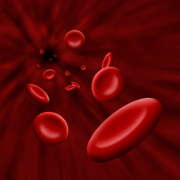Cholera, an acute infectious disease, causes diarrhea in people. It is caused by a bacterium known as Vibrio cholerae (V. cholerae). Outbreaks of cholera have occurred for thousands of years. In fact, there are recordings of outbreaks during the times of Sanskrit writings.
For centuries, due to the contamination of food and water supplies, cholera outbreaks have continued to be prevalent on the Indian subcontinent. Cholera spread to Europe and Americas during the 19th century. Many frightening epidemics of the disease were seen during this period.
John Snow was the first to trace cholera to a water pump in SoHo, England during an intense outbreak in London in 1854. This breakthrough was the first time the link between contaminated water and cholera could be proven.
Thirty years later, Robert Koch discovered and isolated the toxic bacterium, also known as the cholera toxin: the bacterium Vibrio cholerae. The dehydration that can occur with watery diarrhea is the reason that people die from this disease.
Most often this disease is contracted by ingesting contaminated food or water. The immediate attention to the possibility of becoming severely dehydrated as a result of diarrhea will make the difference between survival and death with this disease.
Some of the symptoms of cholera include:
• Vomiting
• Loss of skin elasticity
• Rapid heart rate
• Muscle cramps
• Low blood pressure
• Dry mucous membranes
• Thirst
• Restlessness or irritability, especially in children
• Diarrhea with mucus and some epithelial cells that appear to be flecks of whitish material, and are the size of grains of rice. For this reason, the diarrhea associated with cholera is known as “rice water stool.” It can have a “fishy” odor. There can be a very high volume of diarrhea, as much as 10 to 18 liters over a 24 hour period.
Getting hydration is crucial in treating cholera to avoid electrolyte imbalance and even death.
There is a vaccine against V. cholerae and more organizations are using this to prove it can be helpful against the spread of this disease. A year after cholera burst upon Haiti, there is a plan in place to begin vaccinating people against the highly contagious disease.
About 5 percent of the population (nearly a half million) have already been afflicted and more than 6,500 have died. According to NPR's health blog, "the goal of the vaccinators isn't to stop cholera in its tracks. They can't do that in Haiti with just 200,000 doses — enough for only 100,000 people — that's all the manufacturer can offer."
The purpose of the vaccination process is to save lives, but also to prove to the world that this is an effective measure against cholera.
Sources:
NPR. Shots, NPR’s Health Blog. After A Half-Million Cholera Cases, Vaccination Will Begin In Haiti By Richard Knox. Retrieved from the internet on October 29, 2011
http://www.npr.org/blogs/health/2011/10/20/141546570/after-a-half-million-cholera-cases-vaccination-will-begin-in-haiti
Cholera Toxin By Jennifer McDowall. Retrieved from the internet on October 29, 2011. http://www.ebi.ac.uk/interpro/potm/2005_9/Page1.htm
InterPro. Cholera Toxin. Retrieved from the internet on October 29, 2011
http://www.ebi.ac.uk/interpro/potm/2005_9/Page2.htm
MedicineNet.com. Cholera. Retrieved from the internet on October 29, 2011
http://www.medicinenet.com/cholera/article.htm
Aimee Boyle is a regular contributor to EmpowHer.
Reviewed November 3, 2011
by Michele Blacksberg RN
Edited by Jody Smith




Add a CommentComments
There are no comments yet. Be the first one and get the conversation started!